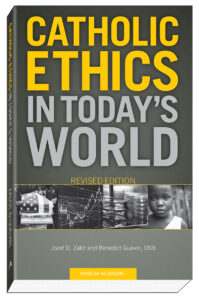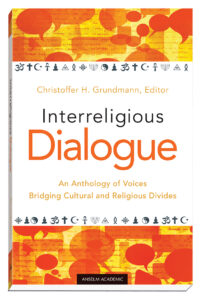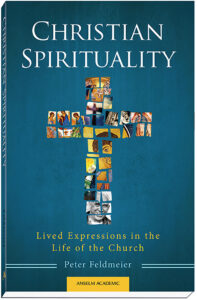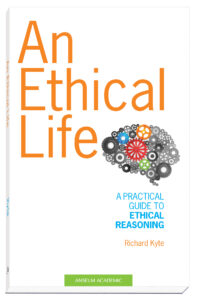Who Would Jesus Kill?
War, Peace, and the Christian Tradition
About This Book
Overview
A Concise, Provocative Look at the Continuum of Approaches to War and Peace within the Christian Tradition and Beyond: Pacifism, Holy War, and Just War
In Who Would Jesus Kill? War, Peace, and the Christian Tradition, Dr. Mark J. Allman asks a provocative, timely, and timeless question. Readable and thought-provoking, Who Would Jesus Kill? provides an overview of approaches to war and peace within the Christian tradition. The author invites students to reflect on their own views as he examines in detail the topics of holy war, just war, and pacifism. An appendix further explores the issues of war and peace from Jewish and Muslim perspectives.
Allman gives a lecture called “Gods of War.” The lecture is broken into nine videos.
Details
| Weight | 0.8 lbs |
|---|---|
| Dimensions | 5.375 × 1.5 × 8.25 in |
| Format | Softcover |
| Print ISBN | 978-0-88489-984-6 |
| Pages | 326 |
| Item # | 7010 |
|---|
Customer Reviews
“Mark J. Allman has done Protestants a favor in writing this book. While the provocative title might suggest Allman’s affinity for a liberal, idealistic pacifist position intimately acquainted with the horrors of war, this book is anything but. Allman weaves scripture, church history and tradition together beautifully in presenting the complexities and challenges of any theological position on war, with generous attentiveness to competing positions. Yet, Allman does so in a way which is remarkably accessible for undergraduate students, while remaining challenging enough for postgraduates as well.”
Urbana Theological Seminary
“I am using Mark Allman’s Who Would Jesus Kill? in my ‘Christian Peacemaking’ course this semester. His chapter that is a primer on Christian ethics is a thorough overview that is student friendly. He is equally thorough and fair in presenting the three models of Christian response to issues of war and peace: nonviolence, holy war, and the just war tradition. I am delighted that his chapter on challenges and adaptations to just war theory includes both the just post bellum addition and the just peacemaking paradigm. The reader knows that an effective and creative teacher has written this book.”
Bellarmine University
“The fruit of careful research and instructional experience in the college classroom, this text provides a comprehensive yet accessible treatment of the various Christian ethical approaches to peace and war. Also discussed in a fine appendix [are] ethical approaches . . . in the Jewish and Islamic faith traditions. Easily discernible throughout the text is the author’s passion for teaching undergraduates and providing them with the tools and information they need for thinking critically about this timely yet perennial moral issue.”
Associate Professor of Theological Ethics
Saint Louis University, MO
“Clear writing, good use of accessible quotes, nice historical references, and an effective pedagogical approach, with the questions forcing a critical summary reflection.”
Professor of Ethics
University of Waterloo, Waterloo, Ontario, Canada
“Mark Allman’s Who Would Jesus Kill? provides a rich resource for courses that focus on holy war, pacifism, or just war theory. The detailed treatment of these foci in the book is supported well by an introductory chapter on Christian ethics, discussion questions at the end of each chapter, and appendices on Jewish and Muslim perspectives on war and peace. In short, this volume provides a rare blend of substance and pedagogical usefulness.”
Stonehill College
“Perhaps the best test of a book is how students respond. My students found Who Would Jesus Kill? to be informative and engaging. They appreciated the broad historical overview of Christian perspectives on war and how these views shape our current reflections on war and peace. Allman’s text is clear, relevant, and thought provoking as the title suggests. If you want a textbook that will get your students thinking about the ethical issues related to war, the use of violence, and the search for peace this is one to choose.”
Gonzaga University
Table of Contents
Foreword
Introduction
What Is War?
How to Use This Book
Continuum of Approaches to War and Peace (chart)
1. A Crash Course in Christian Ethics
Christian Ethics
War Is an Ethical Issue
Discussion Questions
2. Pacifism
Degrees of Pacifism
Pacifism and Scripture
Christian Pacifism through the Ages
Challenges to Christian Pacifism
Discussion Questions
3. Holy War
Demonizing the Enemy
Christian Holy War
Ten Types of Holy Wars
Discussion Questions
4. Just War Theory: A Third Way?
The Just War Tradition
The Just War Theory
Discussion Questions
5. Challenges to and Adaptations of the Just War Theory
Three Principal Challenges to the Just War Theory
Two Adaptations of the Just War Theory
Defending the Just War Theory
Discussion Questions
6. Conclusion
Appendix: Jewish and Muslim Perspectives on War and Peace
Judaism
Islam
Christian Holy War and Muslim Jihad: A Comparison Conclusion
Discussion Questions
Church Documents Cited
Acknowledgments
Recommended Reading
Index
Professional Reviews
“‘Who would Jesus kill?’ asks author Mark Allman in this introduction to Christian thought on the ideal of peace and the morality of warfare. The answer is easy: No one! The unmarried, childless, propertyless, nonpolitical Jesus of the canonical Gospels kills no one.
“Many of those baptized into the life, death, and Resurrection of Jesus, however, as well as others who look to Jesus as a moral example, have engaged in warfare and killing with regularity. “Who Would Jesus Kill? presents a variety of positions, rationales, and critiques that disciples of Jesus have used throughout history to justify their personal and communal conduct that seems in such clear opposition to the words and example of Jesus.
“This book seems to be intended for college classrooms, adult education programs, and thoughtful readers. A challenging teacher, Allman presents a great deal of information but does not do all the work for the reader. In addition to the reflection questions that close every chapter, Allman leaves open to discussion why the various moral theories presented early in the book exist. Also unexplained (because it is possibly unexplainable) is why various prayerful, thoughtful, sincere Christians might hold such different positions on issues so important—the matters of killing and the destruction of lives, cultures, and property that is of the essence of warfare.
“There are places in the text where Allman leaves it to the reader to figure out the kind of pacifist, just warrior, or holy war he is discussing—but no one who reads WWJK? will ever want use the words ‘pacifism,’ ‘just war,’ or ‘holy war’ again. Allman does not allow simplistic understandings of these complicated ideas to stand without critique.
“Who Would Jesus Kill? is a useful introduction to Christian positions on the objective morality of war and peacemaking. Those forming and reforming their consciences on matters of war and peace will profit from Allman’s thought-provoking explanation.”
March 15, 2009
“In the foreword, Tobias Winright says this book is ‘comprehensive yet accessible’ and imbued with ‘the author’s passion for teaching undergraduates and providing them with the tools for thinking critically about this timely yet perennial issue.’ I could not agree more.
“I used Who Would Jesus Kill? as one of the texts in a Christian Peacemaking course, and my students agree that it is thorough, informative, and readable. It presents the Christian tradition on war and peace in a substantive and critical manner. This text helps the student to understand the wisdom of the past and to clarify his or her own position on the morality of war. The first words of the introduction are ‘War is about killing’—to shock us out of our complacency regarding this massive evil. The introduction seeks to define war and concludes with a chart that places the approaches to war and peace on a continuum. Later chapters refer to this chart in clarifying the reader’s position on the morality of war.
“The first chapter is a ‘Crash Course in Christian Ethics’ that surveys the four sources of Christian ethics—Scripture, tradition, reason, and experience—in a way worthy of a good course on moral theology. The next three chapters explore the major approaches to war and peace in the Christian tradition—pacifism, holy war, and just war. The basic pattern of these chapters is to begin with definitions and distinctions, examine the biblical basis for this model, trace it through history, and discuss the criticisms of this model regarding the morality of war. The fifth chapter investigates ‘challenges and adaptations’ to the just war theory, including criteria for post-war justice (jus post bellum) and the just peacemaking model. After a brief concluding chapter, there is a substantial appendix devoted to ‘Jewish and Muslim Perspectives on War and Peace.’
“There are numerous sidebars throughout the text that present related topics, such as conscientious objection in the chapter on pacifism. Each chapter includes provocative discussion questions and endnotes, which demonstrate extensive research and point to further reading.
“This is an accurate, insightful, and user-friendly introduction to the Christian tradition on war and peace. I think it is the best text available on the topic.
“From my perspective, its major weakness is that the presentation of the New Testament basis for nonviolence is not challenging enough. Gandhi quipped that the only ones who do not think that Jesus was nonviolent are the Christians. Allman might have drawn on Scripture scholar Walter Wink, who presents Jesus’ ‘third way,’ and/or James Douglass’ theology of the nonviolent cross (or many others) to buttress the Christian foundation for peacemaking. Instead, the chapter on pacifism devotes more pages to the challenge from realism than to the gospel basis of nonviolent discipleship.
“In the end, Allman’s answer to the provocative question in the book’s title is that Jesus would kill unjust aggressors and those who oppress others (or at least the followers of Jesus can be morally justified in killing them). Perhaps that is right, but the unsettling power of the title’s question should be more convincingly presented. While many of my students appreciated the thoroughness of the book, some thought it gave too much information. I understand their point; it is like wanting to edit a movie we think is too long. I also appreciate, however, the author’s desire to be comprehensive. An instructor can always highlight sections for student focus. Nevertheless, there may be places where judicious summary might have replaced more comprehensive exposition.
“The College Theology Society confirmed the excellence of Who Would Jesus Kill? by bestowing the Best Book Award to Mark Allman for this book at the 2009 Annual Meeting. It is well-deserved.”
Used by permission of Horizons.
Villanova University, Fall 2009, Volume 36, Number 2






